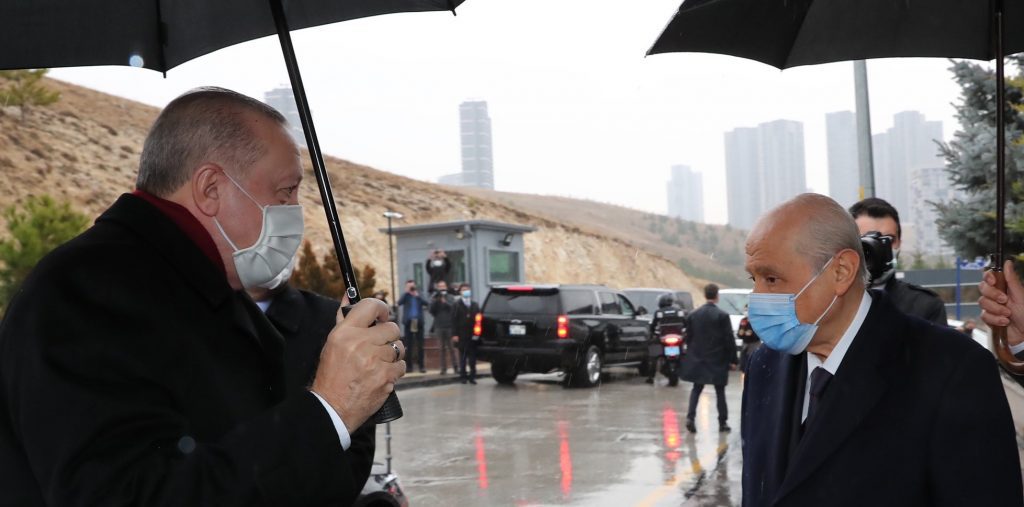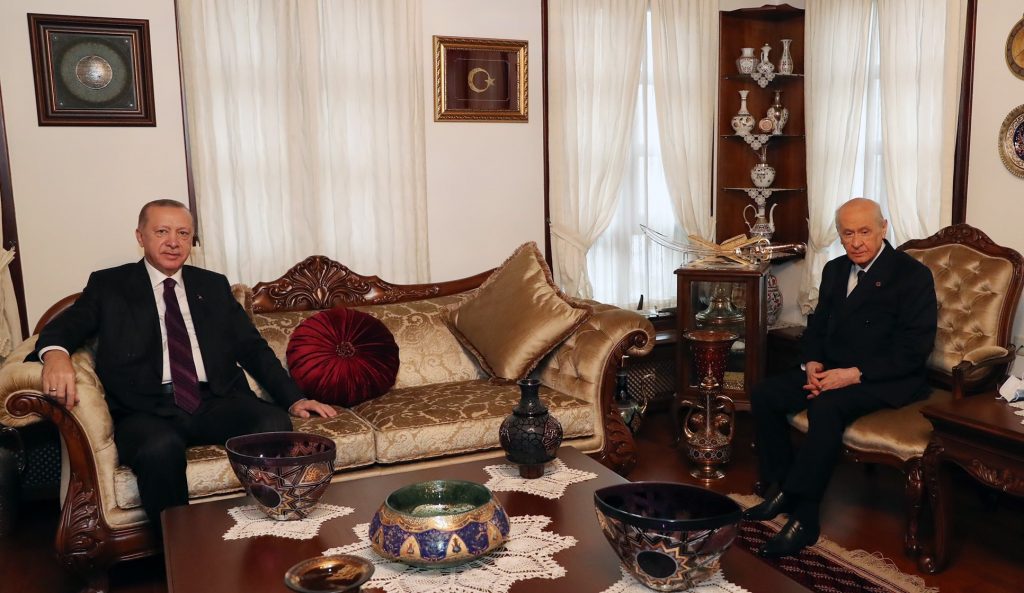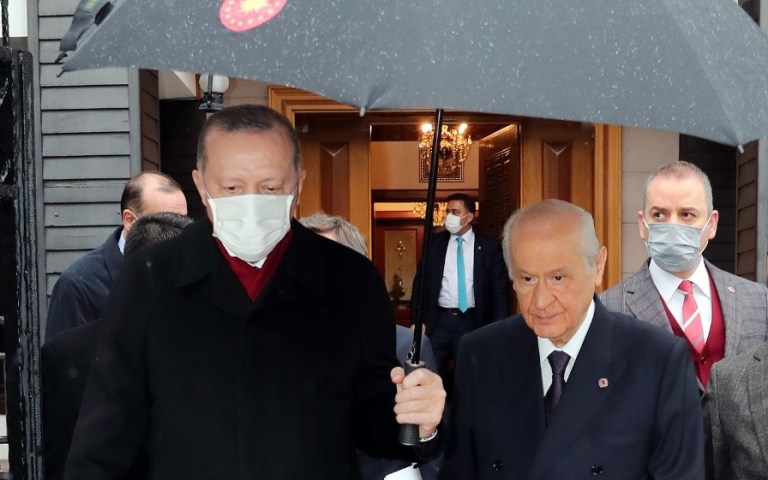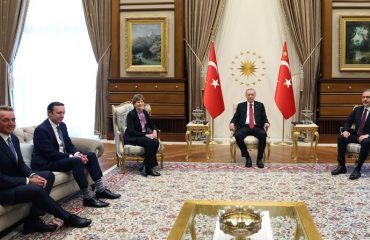

President Tayyip Erdoğan paid a visit to Nationalist Movement Party (MHP) leader Devlet Bahçeli, the election partner of his ruling Justice and Development Party (AKP) at his home. This was the third contact of the leaders of the People’s Alliance in a week. The first meeting was held in the Presidential Palace, before an award ceremony on Dec. 30, 2020. The second was on the phone calls on Dec. 31. No official statement was made on the content of the talks. However, looking at the leaking backstage information and the problems on the country’s agenda, it is not hard to guess that they are having difficult times and this was seen in their expressions and body language. Eyes do not lie.
I am not going to make a “crack” analysis of Erdoğan and Bahçeli’s looks, stances, and the way they said goodbye to each other. Still, it is obvious that the new year did not take a happy start for the two leaders and they are aware that there are serious problems on the desk of Turkey’s ruling alliance. And what are these problems?

Backstage information
But before listing these problems, let’s take a look at the information that leaked from the political backstage.
According to Abdulkadir Selvi, a Hürriyet columnist with good sources inside the AKP, Erdoğan said during the Dec. 30 meeting that he wanted to visit Bahçeli at his home. Then the latest meeting should have been set during the Dec. 31 phone call. The information that Erdoğan informed Bahçeli about the agenda of the meeting and the problems to be addressed while requesting an appointment, is in line with the normal course of politics.
According to the backstage information, the economic and judicial reforms that Erdoğan mentioned in November were discussed. Also foreign policy issues, relations with the U.S. and the EU were on the table. But there are many other issues on the list of problems, and the Covid-19 pandemic is on the top of it.
Bahçeli may play role in judicial reforms
Erdoğan gathered the AKP administration on Jan. 4 to discuss reforms. It is understood that Erdoğan informed Bahçeli about the reform efforts by Treasury and Finance Minister Lütfi Elvan and Justice Minister Abdulhamit Gül. And he received his opinions.
Bahçeli seems to have a significant role in the reforms in the pipeline, especially in the changes in the judiciary. We all remember what happened right after Eroğan promised reforms. Bülent Arınç, one of the pillars of the AKP’s foundation and development eras, was encouraged by the promise and spoke about the situations of arrested Selahattin Demirtaş, former Peoples’ Democratic Party (HDP) co-chair, and activist Osman Kavala. Bahçeli immediately objected to Arınç and insulted him in his speech in parliament, and finally, Arınç left his seat at Erdoğan’s high advisory council.
Bahçeli is not expected to have a restraining effect on the economy. However, the actors of the economy have different expectations. For example, the unemployed people, workers and tradesmen -sections most affected by the Covid-19 pandemic- expect direct help that will save the day. Small and medium-sized businesses are trying to make their voices heard through the Turkish Union of Chambers and Commodity Exchanges (TOBB) They want to survive the pandemic with less damage possible and without going bankrupt. Turkish Industry and Business Association (TUSİAD) cares about judicial reforms that would support Turkey’s international reputation as well as the structural reforms.
Recovery in the economy means voting support for the government.

Foreign developments affect the economy
The effect of less executive influence on the judiciary is not limited to the relations with the European Union anymore. It can also stand out in relations with the United States. U.S. president-elect Joe Biden, who will take over the White House on Jan. 20, announced that a democratization conference tops his international priority list. The Feb. 27 NATO summit will be the first venue to test the Turkey-U.S. relations that are already overshadowed by the Washington sanctions on Ankara. The EU leaders, for their side, will make a decision on Turkey on March 25, looking at the U.S. stance on Turkey.
Eurasia Group, one of the leading consultancy companies of the world, says the fact that the Turkish balance of payments has deteriorated to a level that would weaken the grassroots of Turkey is among the global risks.
If such a risk takes Turkey to snap polls, then it is not a big problem since the voters will make the decision. But the real risk, according to Eurasia, is that a worse balance of payments could lead Turkey to new military moves.
So, all problems from judicial reform to economic reforms, from foreign policy to election debate are intertwined, waiting at the gate.
And it is this trouble that is seen in the eyes of Erdoğan and Bahçeli.


